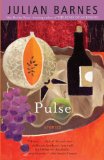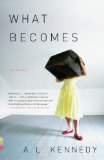Summary | Excerpt | Reviews | Beyond the book | Read-Alikes | Genres & Themes | Author Bio

Stories
by Colm ToibinColm Toibin's new book, The Empty Family, is a haunting collection of nine short stories that speaks to the connections we make with both people and places. It explores the idea that recognizing and acknowledging the profound influence both these aspects have on us leads us to be content with who we are. The high bar of expectation set by Tóibín's previous books is met if not surpassed by this latest work. Once again we are given the gift of wonderful writing, not only because of the journeys we are taken on but the way in which we travel.
All of the narrating characters share one common trait, they are solitary, self-controlled and stoic in nature. Yet as each tale unfolds, we not only see what they do and listen to what they say but are privy to what they think and so they become open to us in a poignant and intimate way. We witness each of them grapple with loss, longing and regret, arriving somewhere between resignation and peace, leaving us to mull just how great is the distance between the two.
Then there are the sentences themselves, strung together like stars in the night sky, one after the other, vivid, poetic, and sensual. Prose so embracing that one pauses to reread certain lines over again before moving on.
In "The New" Spain a young woman, Carme, having fled her family and home because of her political beliefs, returns eight years later, after the death of her grandmother. She joins her parents and her sister at the grandmother's summer home, a place that holds fond childhood memories for her.
"The garden was scorched by the sun and the sea wind; the beach close by was empty in the mornings and sometimes in the heat of the day. She remembered the smell of burning citronella to keep the mosquitoes away as they dined late; she remembered the salty heat as she fell asleep at the table while the adults talked and then was carried quietly to bed."
Carme still feels very much the outsider, there remains familial discontent, though for different reasons than before. And yet a growing feeling of peace is enveloping her as well. We are asked to ponder the idea of that moment in one's life when we accept who and what we are, and let go of the rest, ultimately resigned to where our choices have led us.
In "One Minus One", a man leaves a grocery store and is suddenly overwhelmed with the memory of being called home to Ireland because his mother is dying. In his mind, he speaks to an old lover, going over the days surrounding her death as well as those from childhood, a time when his father was ill and he and his younger brother were suddenly bundled off to live temporarily with their aunt, their mother seemingly disappearing without a trace. He thinks of questions he never asked her and how they will stay forever unanswered.
"The moon hangs low over Texas. The moon is my mother. She is full tonight, and brighter than the brightest neon; there are folds of red in her vast amber. Maybe she is a harvest moon, a Comanche moon. I have never seen a moon so low and so full of her own deep brightness. My mother is six years dead tonight, and Ireland is six hours away and you are asleep."
This is one of three stories told in the first person; each narrator being an Irish middle aged gay man, like Tóibín himself. These first person stories ring so real, so raw and personal that one wonders how autobiographical they might be. With some sexual encounters fairly explicit in nature, this is not a book that should be handed off to one's fourteen year old. In fact, this is very much an adult book, its characters speaking with weathered adult voices, long past the age of starry eyed youth.
The Empty Family is a bittersweet collection of stories that speaks to how we attempt to connect the components of our lives together in ways that allow us to make sense of our journey and feel tethered to it. The result of Colm Tóibín's mastery of story-telling and acute awareness of human emotions is a beautifully written book worthy of great praise and profound respect.
![]() This review was originally published in The BookBrowse Review in February 2011, and has been updated for the
February 2012 edition.
Click here to go to this issue.
This review was originally published in The BookBrowse Review in February 2011, and has been updated for the
February 2012 edition.
Click here to go to this issue.

If you liked The Empty Family, try these:

by Julian Barnes
Published 2012
After the best-selling Arthur & George and Nothing to Be Frightened Of, Julian Barnes returns with fourteen stories about longing and loss, friendship and love, whose mysterious natures he examines with his trademark wit and observant eye.

by A.L. Kennedy
Published 2011
Powerful and funny, intimate and profound, the stories in What Becomes capture the spirit of our times with dark humor, poignant hopefulness, and brilliant evocation of contemporary social and spiritual malaise.
All my major works have been written in prison...
Click Here to find out who said this, as well as discovering other famous literary quotes!
Your guide toexceptional books
BookBrowse seeks out and recommends the best in contemporary fiction and nonfiction—books that not only engage and entertain but also deepen our understanding of ourselves and the world around us.